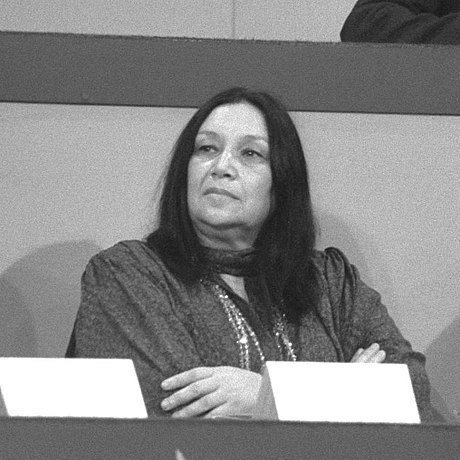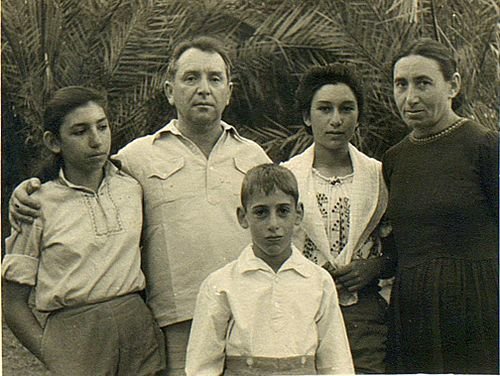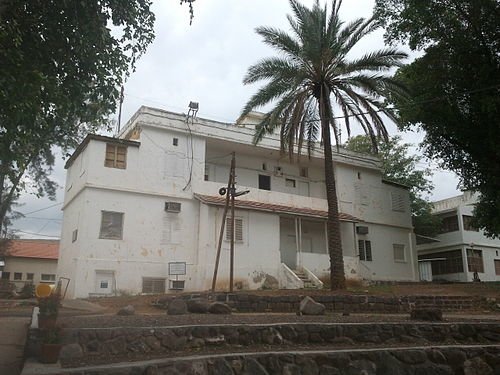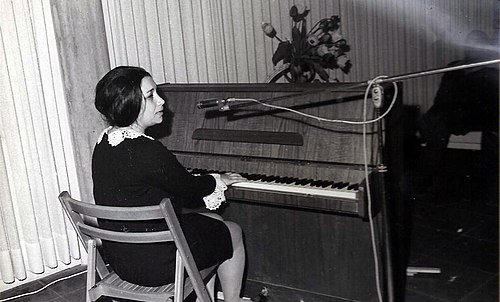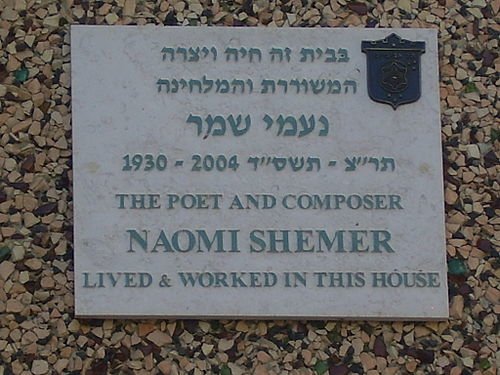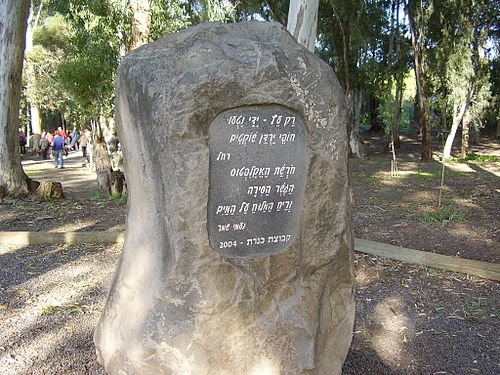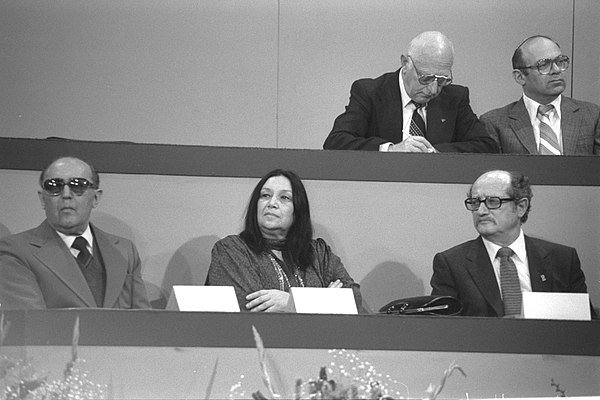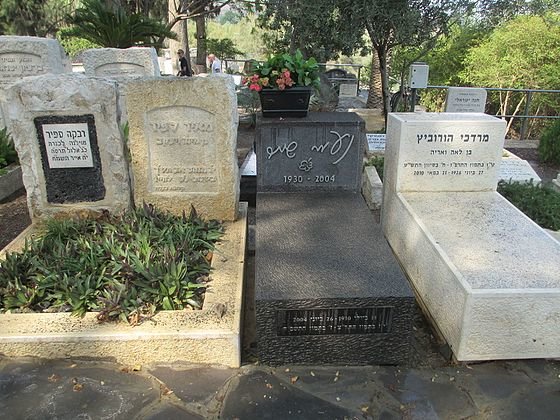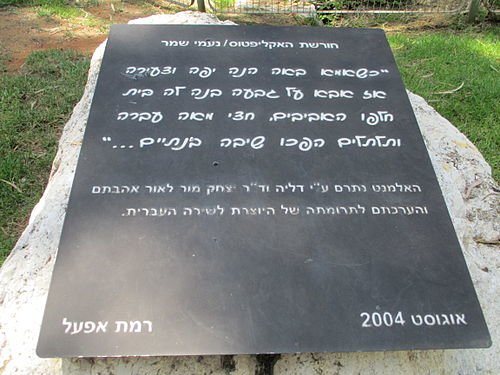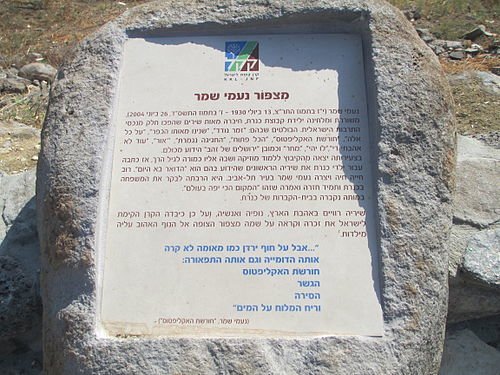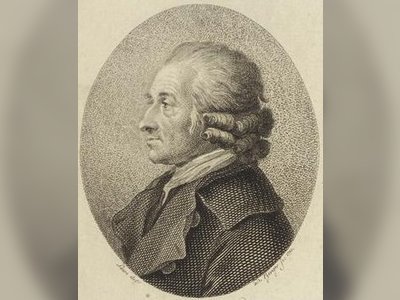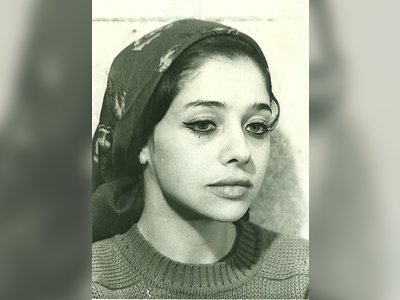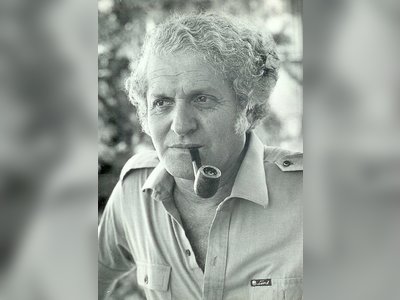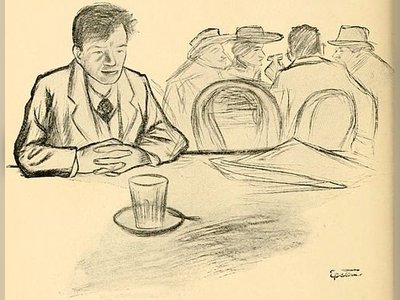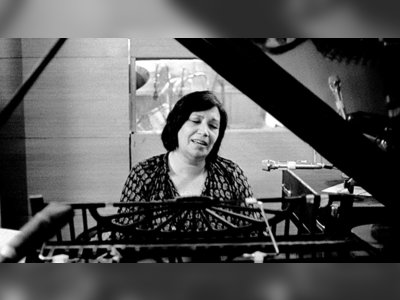Naomi Shemer: A Musical Journey of Israel's Iconic Songstress
Naomi Shemer (July 13, 1930 – June 26, 2004) was a renowned Israeli poet, musician, and songwriter, known for her contributions to Israeli folk music and her heartfelt lyrics.
She was awarded the prestigious Israel Prize for Hebrew songwriting in recognition of her outstanding contributions to the country's cultural heritage. Shemer's poetic talents gave birth to timeless classics, including "Jerusalem of Gold," "Eucalyptus Grove," "Lu Yehi," "Over All of This," and "The Song of the Grass."
Born and raised in Kibbutz Kinneret as Naomi Sapir, she was the daughter of Meir Sapir (Sapirov), one of the founders of the kibbutz, and Rivka, the daughter of Chana and Yona Shapriri. Encouraged by her mother, Naomi began playing the piano at the tender age of six.
In 1935, at the age of five, Naomi traveled with her mother to visit relatives in Vilna, where she met her only surviving aunt, Bertha, and her family. Tragically, Bertha and her family were all lost in the Holocaust.
Despite some resistance from her fellow kibbutz members, Naomi pursued her passion for music after completing her high school education. She first studied at the Israeli Conservatory in Tel Aviv and later at the Jerusalem Academy of Music and Dance. Her mentors included notable figures such as Paul Ben-Haim, Frank Peleg, Abel Ehrlich, Ilona Vinze-Kraus, and Yosef Tal.
Upon returning from her studies in Jerusalem, Naomi taught rhythm to the children of the kibbutz, which marked the inception of her songwriting career with compositions like "The Mail Arrived Today" and "Our Young Brother," which were later recorded by Yaffa Yarkoni on her album "Songs from Kinneret."
In 1951, after four years of deferment, Naomi was conscripted into the Israel Defense Forces (IDF) and served as a pianist under the Nachal Brigade. In 1953, she crossed paths with actor Gideon Shemer during a joint performance for the United Kibbutzim and Communes Assembly in Netzer Sereni. They married in 1954 and had a daughter together.
Emerging as a Prolific Songwriter
Following her release from the military, Naomi began writing songs for the theater. She collaborated with composer Yoachim Zara'i on the musical "Pshita BaKfar" (later known as "Hamish-Hamish"), where she penned lyrics under the pseudonym S. Carmel. Among the well-known songs from this production are "Tarnegol Ben-Gever," "Rav Ha'Or Ve'HaTekhelet," and "Shir HaBar." Later, she wrote songs for the Habima Theater's production of "Daber El HaKotel," including the song "HaLayla Holech BaShderot," performed by Shimon Israeli.
Many of the songs she wrote for military ensembles became instant successes, such as "Hamsinim BaMashlat," "Hakol Biglal Masmer," and many others. During this time, she also wrote "Kivu'i Orot" and "Shirat HaShuk" for the HaOhel Theater.
In 1958, Haim Topol invited Naomi to write for the debut show of the "Green Onion" ensemble. She composed the lyrics for their first song, "Mishirei Zemer Noded" (more commonly known as "Haderech Aruka Hi VeRaba"). Another song she wrote, "Noah," which she said was written about herself, was also featured in this show. In the production "Daber El HaKotel," which was staged at the Sam Spiegel Theater in 1958, she wrote and composed the song "HaLayla Holech BaShderot," performed by Shimon Israeli.
Songs written by Naomi Shemer for military bands during this period enjoyed immense popularity. Some of these songs include "Hamsinim BaMashlat," "Hakol Biglal Masmer," and more. She also wrote "Kibui Orot" and "Shirat HaShuk" for the Nahal Ensemble. In the same year, she separated from her husband (they officially divorced in 1968).
In 1963, she wrote "Horeishet HaEucalyptus" for the musical "Keitzad Shovrim Hamasin," which was performed to celebrate the completion of the first-grade cycle at the Kinneret Elementary School. That year, she also composed music for Rachel the Poet's "Kinneret" ("Shem Harim Golan") for the Central Command Band.
In 1964, she wrote songs for the first program of the Yarkon Trio, "First Love," including "Ahavat Poalei HaBinyan," "Serenade Lach," "Ayelet Ahavim," and "Laila BaChof Akhziv," which was also featured in the film "Dalia and the Sailors," in which the trio participated.
In the same year, she traveled to Paris with her daughter, where she wrote songs influenced by prominent French chansonniers such as "The City in Gray" (written for the Yarkon Trio) and translated French songs into Hebrew, including "Ilu Tziporim" (Jean-Pierre Calvet and Jean Brosseau), "Shalgeya" (Guy Béart), and "Ein Ahavot Simkhot" (Georges Brassens), most of which were performed by Yossi Banai.
Upon returning to Israel in 1966, the producer Asher Hovav approached Naomi to form a female quartet. She founded "The Shemer Sisters," which included Dina Golann, Dalit Oren, Amna Goldstein, and Ruth Bickel. Batya Strauss served as the musical director. The quartet presented songs like "B'Gani" ("In My Garden"), "Zemer" ("A Song"), and "Shiru Shel Aba" ("Father's Song"). However, the venture faced financial challenges and disbanded.
The Peak of Her Career
One of the pivotal moments in Naomi Shemer's musical career occurred in 1967 when she composed "Yerushalayim Shel Zahav" ("Jerusalem of Gold"). The song was initially commissioned by Teddy Kollek, the mayor of Jerusalem, to commemorate the Israel Song Festival held that year at the Binyanei Ha'uma building. "Yerushalayim Shel Zahav" quickly gained popularity at the festival, and the audience joined in to sing along.
The song was performed by an unknown and talented soprano named Shuli Nathan, chosen by Naomi herself, with the advice of her daughter Lali. Shuli Nathan's clear soprano voice perfectly matched Naomi's vision for the song.
Just three weeks after the song's debut at the festival, the Six-Day War erupted, leading to the unification of Jerusalem under Israeli rule. Naomi added a new verse to the song, reflecting the city's transformation before and after the war.
While "Eichah Yavshu Burot HaMayim" and "VeEin Pokeid Et Har HaBayit" spoke of the city's challenges before the war, the new verse declared, "Chazarnu El Burot HaMayim" ("We have returned to the wells of water") and "Shofar Kora BeHar HaBayit" ("A shofar blows at the Temple Mount"). In the months following the war and in the years between conflicts, the song took on new significance and became somewhat of a national anthem, often referred to as the "unofficial" national anthem of Israel.
Naomi Shemer's music touched the hearts of generations, and her legacy continues to live on in the timeless melodies and poignant lyrics she gifted to the world. Her profound contributions to Israeli music and culture have left an indelible mark on the nation's artistic landscape.
- נעמי שמרhe.wikipedia.org
